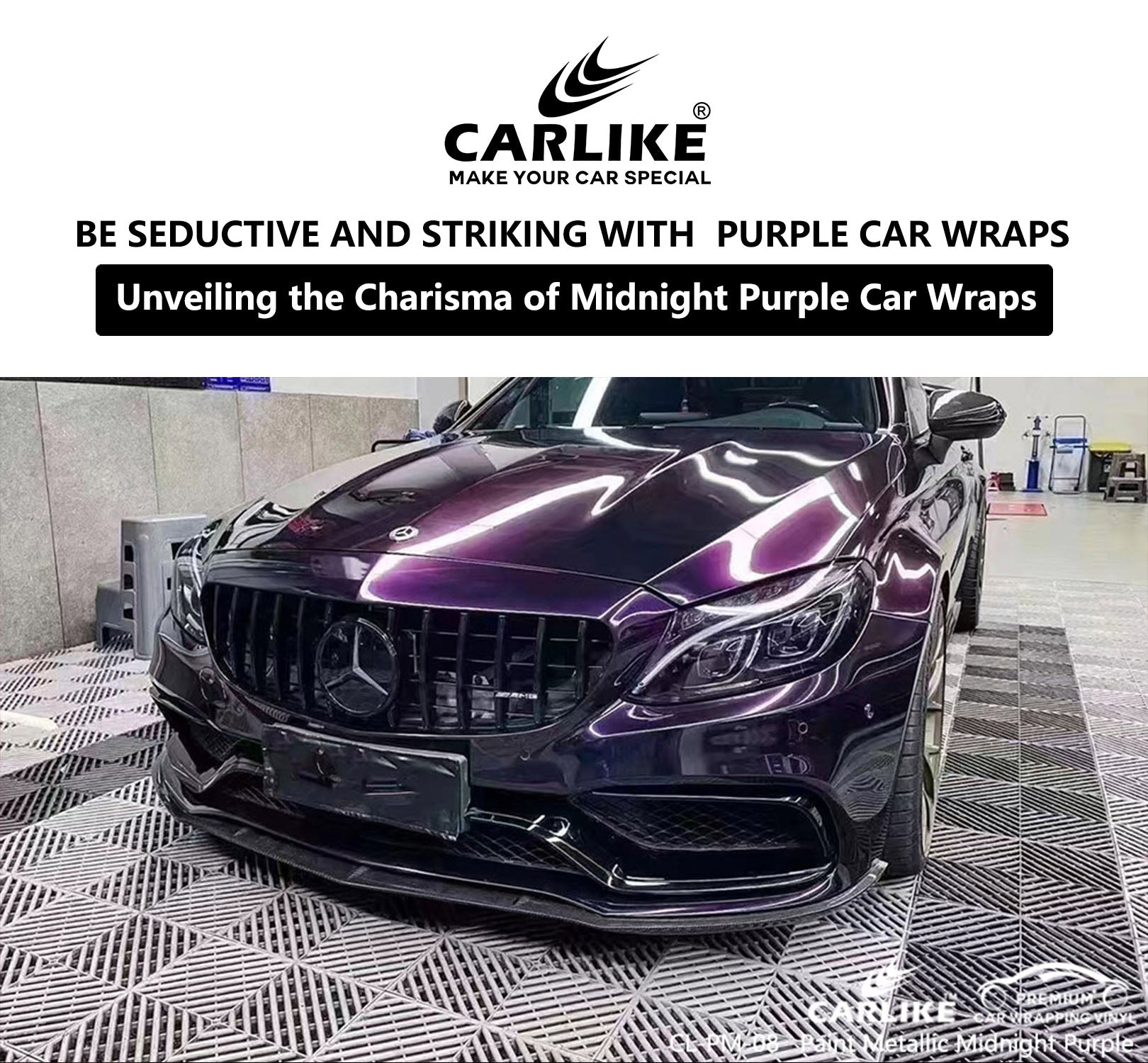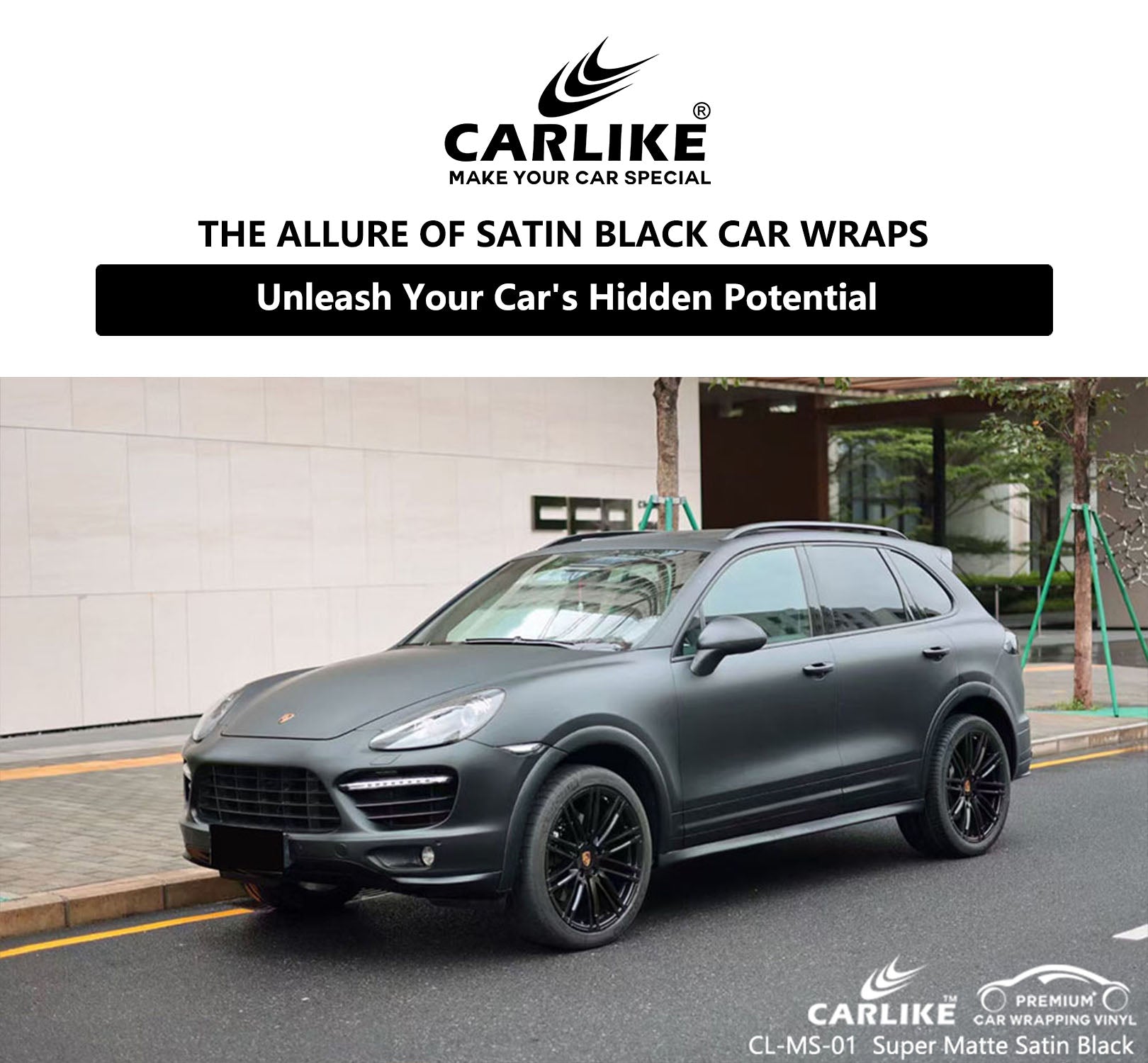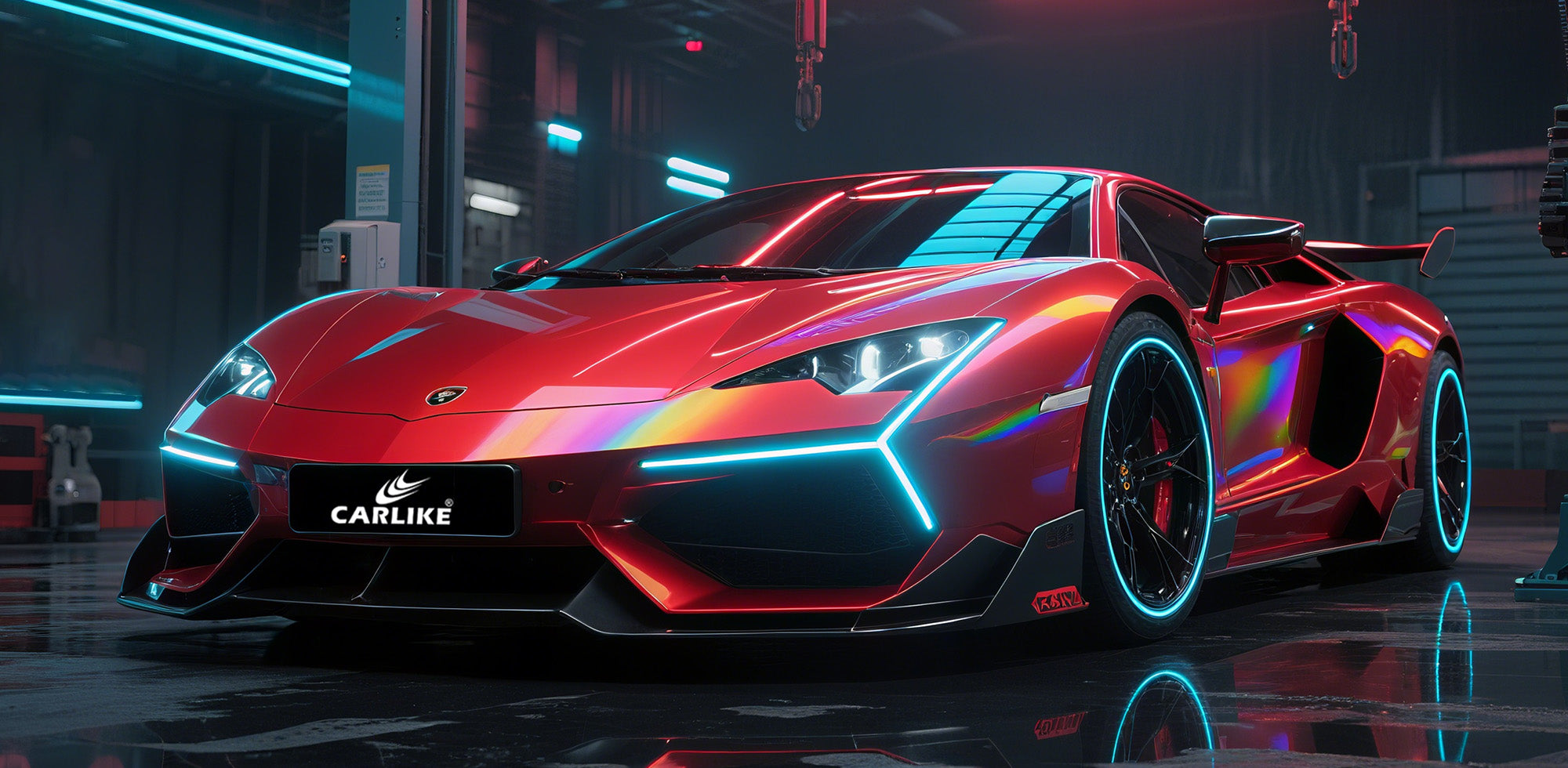Factors Affecting the Average Price to Wrap a Car: What Car Owners Should Consider
When it comes to wrapping a car, the average price can vary significantly depending on several key factors. Understanding these factors is crucial for car owners who are considering getting their vehicles wrapped. By being aware of the elements that influence the cost, car owners can make informed decisions and ensure they get the best value for their investment. Here are some important factors to consider:
1. Vehicle Size and Complexity: The size and complexity of a car play a significant role in determining the average price to wrap it. Larger vehicles, such as SUVs or vans, generally require more materials and labor, which can increase the cost. Similarly, cars with intricate designs, contours, and difficult-to-reach areas may require additional time and expertise, impacting the overall price.
2. Material Quality: The quality of the wrapping material is another important factor. Car wraps can be made from various materials, ranging from basic vinyl to premium-grade films. Higher-quality materials often come with a higher price tag but offer better durability, color retention, and overall appearance. Car owners should carefully consider their preferences and budget when selecting the material.
3. Design Complexity: The complexity of the design chosen for the car wrap can also affect the average price. Intricate patterns, detailed graphics, and custom artwork require more time and effort from the wrap installer, leading to increased costs. Simple, single-color wraps are generally more affordable compared to complex designs.

4. Additional Services: Car wrapping involves more than just applying the wrap itself. Additional services such as surface preparation, removal of previous wraps or coatings, and design consultation can impact the overall price. These extra services may be necessary depending on the condition of the vehicle's surface and the desired outcome. It is important to discuss these services with the wrap installer to understand their inclusion and associated costs.
5. Geographic Location: The average price to wrap a car can also vary based on the geographic location. Prices tend to differ between cities and regions due to variations in the cost of living, local competition, and demand for car wrapping services. Urban areas or regions with a higher cost of living generally have higher prices compared to less populated or competitive areas.
6. Reputation and Experience: The reputation and experience of the wrap installer can influence the average price. Highly skilled and well-known professionals may charge more for their expertise and quality of work. While it can be tempting to opt for lower-priced options, it's essential to consider the installer's track record and customer reviews to ensure a satisfactory outcome.
7. Quantity and Customization: If a car owner wants to wrap multiple vehicles or customize each wrap individually, there may be opportunities for discounted pricing or package deals. Discussing the project scope and requirements with wrap installers can help car owners explore potential cost-saving options.
It is important for car owners to consider these factors collectively when estimating the average price to wrap their cars. A comprehensive evaluation of these aspects will enable car owners to make informed decisions that align with their budget, preferences, and desired outcomes. By understanding the factors that influence pricing, car owners can collaborate effectively with wrap installers to achieve the desired results while staying within their budgetary constraints.
Different Types of Car Wraps and Their Impact on the Average Price
When considering a car wrap, it's essential to understand the different types of wraps available and how they can impact the average price. Car wraps come in various styles, materials, and finishes, each offering different benefits and price points. By familiarizing themselves with the options, car owners can make informed decisions that suit their preferences and budgets. Here are some common types of car wraps and their impact on the average price:
1. Color Change Wraps: Color change wraps are popular among car enthusiasts who want to give their vehicles a fresh look. These wraps come in a wide range of colors and finishes, including glossy, matte, satin, metallic, and textured options. The average price for a color change wrap can vary depending on the size of the vehicle, the quality of the wrap material, and the complexity of the installation. Generally, color change wraps are more affordable compared to custom designs or specialty wraps.
2. Printed Graphics Wraps: Printed graphics wraps allow for customization and personalization of a vehicle's appearance. They involve printing intricate designs, logos, patterns, or even full-scale graphics onto the wrap material. The complexity and size of the design, as well as the quality of the printing and wrap material, can significantly impact the average price. Intricate, highly detailed graphics will generally cost more due to the increased time and labor required for precise installation.
3. Specialty Wraps: Specialty wraps are designed for specific purposes or effects. This includes textured wraps, such as carbon fiber or brushed metal finishes, which can mimic the appearance of high-end materials. These specialty wraps often come at a higher price point due to the unique materials and manufacturing processes involved. The price can also be influenced by the rarity and demand for these specialty options.

4. Partial Wraps: Partial wraps cover only a portion of the vehicle's surface, typically selected areas like the hood, roof, or side panels. These wraps offer a cost-effective alternative to full wraps while still providing a customized look. The average price for partial wraps is generally lower compared to full wraps since less material and labor are required.
5. Full Wraps: Full wraps cover the entire surface of the vehicle, including all panels, bumpers, and trims. They provide the maximum coverage and customization options. Full wraps require more material and labor, resulting in a higher average price compared to partial wraps. The complexity of the vehicle's design, curves, and contours can also influence the price.
6. Paint Protection Film (PPF): PPF is a clear, transparent film that protects the car's original paint from scratches, chips, and other minor damages. While not technically a "wrap" in terms of changing the vehicle's appearance, PPF is an option many car owners consider alongside wraps. The price of PPF can vary based on the quality and coverage area. It is typically priced per square foot and can be an additional expense to consider when discussing car wrapping services.
It's important to note that the average price of car wraps can vary significantly depending on the wrap installer, location, and additional services provided. To get an accurate estimate, car owners should consult with reputable wrap installers and discuss their specific requirements and preferences.
By understanding the different types of car wraps and their impact on pricing, car owners can select the option that aligns with their desired aesthetic, budget, and long-term goals. Collaborating with a professional wrap installer will ensure a high-quality installation and a satisfying transformation of their vehicle's appearance.
How Vehicle Size and Complexity Influence the Average Price to Wrap a Car
When it comes to wrapping a car, the size and complexity of the vehicle play a significant role in determining the average price. These factors directly impact the amount of material needed, the time required for installation, and the level of expertise and effort involved. Understanding how vehicle size and complexity influence the average price can help car owners make informed decisions and accurately estimate the cost of a car wrap. Here's a detailed explanation:
1. Material Quantity: Larger vehicles naturally require more wrapping material to cover their surfaces. This means that the average price of a car wrap will increase for bigger vehicles such as SUVs, vans, or trucks compared to smaller cars. The additional material needed to accommodate the size of the vehicle contributes to the overall cost.
2. Labor and Time: Vehicle size and complexity affect the labor and time required for the installation process. Wrapping a larger vehicle typically takes more time and effort, as there is a larger surface area to cover and more intricate details to navigate. Curves, contours, and difficult-to-reach areas can pose challenges during the installation, requiring additional time and expertise. As a result, the average price of wrapping a car increases for vehicles with complex designs or intricate features.

3. Design Considerations: Complex vehicle designs, such as those with multiple panels, shapes, and lines, can impact the average price of a car wrap. These designs require precise alignment, seamless transitions between panels, and meticulous attention to detail during installation. Wrapping around corners, edges, and body features like door handles or side mirrors can be more time-consuming and labor-intensive. The complexity of the design contributes to increased pricing due to the extra effort and expertise required.
4. Removal and Surface Preparation: Vehicle size can also affect the cost of removing any existing wraps or coatings and preparing the surface for a new wrap. Larger vehicles generally require more time and effort to remove old wraps and prepare the surface by cleaning, sanding, or repairing imperfections. These additional steps impact the average price as they involve extra labor and materials to ensure a smooth and durable wrap application.
5. Specialty Vehicles: Unique or specialty vehicles, such as exotic sports cars or luxury vehicles, often come with distinct design elements and body features that add complexity to the wrapping process. These vehicles may have unconventional shapes, intricate bodywork, or specialized trims that require extra attention and expertise. The additional complexity of wrapping specialty vehicles contributes to higher average prices.
It's important for car owners to consider the impact of vehicle size and complexity on the average price to wrap a car. Consulting with professional wrap installers and providing them with accurate information about the vehicle's size, design intricacies, and any special features will help car owners receive accurate price estimates.
By understanding how these factors influence pricing, car owners can plan their budget accordingly and make informed decisions when it comes to wrapping their vehicles. Collaborating with experienced wrap installers ensures a high-quality installation that meets the unique requirements of the vehicle, regardless of its size or complexity.
The Role of Material Quality in Determining the Average Price of Car Wrapping
When it comes to car wrapping, the quality of materials used is a crucial factor that directly influences the average price. The choice of wrap material can significantly impact the durability, appearance, and longevity of the wrap. Understanding the role of material quality in determining the average price of car wrapping is essential for car owners looking to make informed decisions and invest in a high-quality wrap. Here's a detailed explanation:
1. Durability and Longevity: High-quality wrap materials are typically more durable and offer better longevity compared to lower-quality options. They are designed to withstand outdoor elements, such as UV rays, moisture, and environmental contaminants, without fading, cracking, or peeling. These superior characteristics contribute to a longer lifespan for the wrap, ensuring that it maintains its visual appeal for an extended period. The enhanced durability and longevity of high-quality materials justify their higher price.
2. Color Retention: The color vibrancy and retention of a car wrap depend on the quality of the material. Higher-quality wraps are engineered with advanced pigments and additives that resist color fading over time. They retain their original hues and maintain a fresh appearance, even after prolonged exposure to sunlight and other environmental factors. Car owners who prioritize long-lasting, vibrant colors should opt for higher-quality materials, which are priced accordingly.

3. Installation Ease and Performance: The quality of wrap materials can impact the ease of installation and the overall performance of the wrap. High-quality materials are often designed to be more flexible, making them easier to manipulate around complex curves, contours, and body features of the vehicle. They adhere better to the surface, minimizing the risk of wrinkles, bubbles, or lifting. The superior performance of these materials during installation contributes to a smoother and more professional-looking finished result, justifying the higher price.
4. Texture and Finish: Different wrap materials offer various textures and finishes, such as gloss, matte, satin, metallic, or textured options. Higher-quality materials tend to provide a more premium look and feel. They often feature advanced coatings that enhance the visual appeal and depth of the finish, giving the wrapped vehicle a luxurious or professional appearance. The availability of a wider range of textures and finishes adds to the overall price of high-quality materials.
5. Brand Reputation and Warranty: The reputation of the brand supplying the wrap material can also impact the average price. Well-established brands with a history of producing high-quality materials often command a premium price due to their reputation and track record. Additionally, high-quality materials often come with extended warranties, providing car owners with peace of mind and added value. The inclusion of a warranty can contribute to the higher price of these materials.
It's important for car owners to consider the role of material quality when estimating the average price of car wrapping. While high-quality materials come at a higher cost, they offer several advantages, including enhanced durability, longevity, color retention, ease of installation, and premium finishes. Ultimately, investing in high-quality materials ensures a superior and longer-lasting wrap that provides value for the money.
Working with reputable wrap installers who prioritize quality and have experience with high-quality materials is essential to achieving the desired outcome. They can guide car owners in selecting the appropriate material that aligns with their budget, preferences, and long-term goals. By understanding the role of material quality, car owners can make informed decisions and ensure their wrapped vehicle looks great and stands the test of time.
FAQ for average price to wrap a car?
Q: How much does it cost to wrap a car?
A: The average price to wrap a car can vary depending on factors such as vehicle size, complexity, material quality, design, and additional services. Generally, prices can range from a few hundred to a few thousand dollars.
Q: What factors influence the average price to wrap a car?
A: Several factors impact the average price, including vehicle size and complexity, material quality, design intricacy, additional services required, geographic location, installer reputation, and customization requests.
Q: Does the size of the vehicle affect the cost of wrapping?
A: Yes, larger vehicles generally require more materials and labor, leading to a higher average price compared to smaller vehicles.
Q: Are there additional costs apart from the car wrap itself?
A: Yes, additional costs may include removal of previous wraps, surface preparation, design consultation, and other related services. These costs should be discussed with the wrap installer.
Q: How can I estimate the average price to wrap my car?
A: To estimate the average price, it is recommended to consult with reputable wrap installers, provide accurate information about your vehicle's size, design complexity, and preferences, and discuss your budgetary constraints.
Final Words
In conclusion, understanding the average price to wrap a car is crucial for car owners looking to transform the appearance of their vehicles. The cost of a car wrap can vary depending on factors such as vehicle size, complexity, material quality, design customization, and additional services required. By considering these factors and consulting with reputable wrap installers, car owners can make informed decisions that align with their budgets and aesthetic preferences. Remember, investing in high-quality materials and professional installation ensures a durable and visually stunning wrap that provides value for years to come.
So, whether you're seeking a color change, custom design, or protection for your vehicle's paint, exploring the average price of car wrapping will guide you in achieving the desired transformation. Embrace the opportunity to give your car a fresh, personalized look while enjoying the benefits of a well-executed wrap that turns heads on the road.









